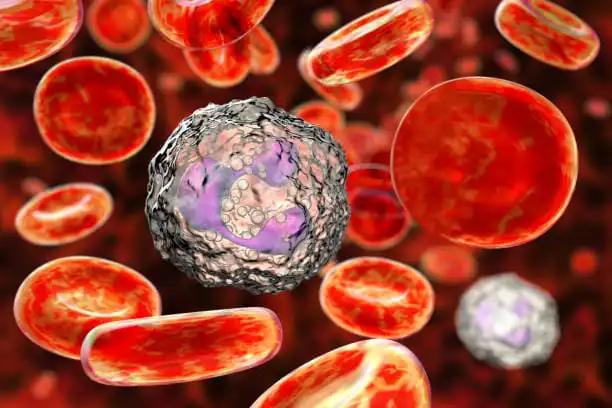KEY TAKEAWAYS
- The PROMETEO II study assessed palbociclib with letrozole in HR+/HER2- RD after standard NAC.
- The trial’s primary endpoint was to establish the rate of CCCA using Ki67 ≤2.7% at SUR. The secondary objectives were RCB and safety.
- The study demonstrated that palbociclib induced a potent anti-proliferative effect in chemo-resistant RD pts with HR+/HER2- BC.
The PROMETEO II trial included patients (pts) who had HR+/HER2- BC with residual disease (RD) after finishing anthracycline/taxane-based neoadjuvant chemotherapy (NAC). RD confirmation involved an ultrasound showcasing a tumor size of ≥ 10 mm and a biopsy that found invasive tumors with a Ki67% ≥ 5% based on local IHC tests. Before their surgical procedure, pts were administered palbociclib (125mg for 21 days) and letrozole. The primary endpoint was to determine the rate of complete cell cycle arrest (CCCA) using a Ki67 ≤2.7% measure during surgery. Secondary objectives were the study of the residual cancer burden (RCB) and safety. Tumor samples were mandatorily taken at three stages: before NAC, during the screening (SCR) period, and during surgery to study gene expression, sTILs, and PD-L1 IHC (SP142).
Out of the 22 pts, the average age was 56 (ranging between 41-69), 45% were premenopausal, and 63% had a histological grade of 2/3. The CCCA rate during surgery stood at 59%. There was a 44.2% reduction in the mean Ki67% from the screening to the surgery. Only one pt reached RCB-I. There was a change in the intrinsic subtype in 58% of the cases during surgery, with the most common (38.1%) being Luminal A/B turning to Normal-like. Post palbociclib treatment, immune-related genes increased while proliferative genes decreased (FDR<5%). Notably, immune genes were more active in tumors with CCCA after palbociclib than those without. 41% of the pts (9 in total) had grade 3 adverse effects (all neutropenia).
Palbociclib demonstrated a significant anti-proliferative effect in patients with HR+/HER2- BC showing chemo-resistant RD. There’s a direct link between immune infiltration and the anti-proliferative response, where immune infiltration is more in residual tumors with CCCA
Clinical Trial: https://classic.clinicaltrials.gov/ct2/show/NCT04130152
Simon, S.P., Torres, E.S., Villacampa, G., Salvador Bofill, F.J., Martorell, A.P., Farre, X.G., Jiménez-Rodríguez, B., Salvador, M.M., Palacios-Ozores, P., Pascual, T., Alba, E., Villanueva, L., Galván, P., Prat, A., Ciruelos, E.M. PALBOCICLIB IN COMBINATION WITH LETROZOLE IN HR+/HER2- RESIDUAL DISEASE AFTER STANDARD NEOADJUVANT CHEMOTHERAPY: PRIMARY RESULTS OF THE SOLTI1710 PROMETEO II WINDOW OF OPPORTUNITY TRIAL. Annals of Oncology (2023) 8 (1suppl_4): 101220-101220. 10.1016/esmoop/esmoop101220



